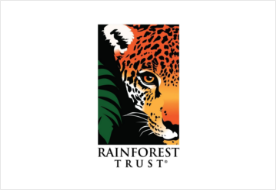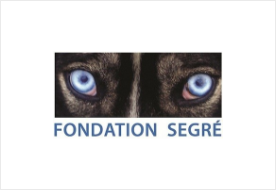We are dedicated to the conservation of wild red pandas and their habitat.
It started with the PIT Red Panda Protected Forest in eastern Nepal. Now we are expanding this community-protected wildlife corridor to remaining red panda range areas.
Conservation is the cornerstone of our work — we believe in a sustainable future for pandas, people, and the planet.
Habitat loss is the biggest threat to red pandas. In Nepal, the once lush forests that red pandas depend on have been fragmented into 400 small forest patches due to land degradation, development, and unsustainable livestock practices.
We are planting thousands of trees, restoring hundreds of acres of red panda habitat, and connecting fragmented forest so red pandas and other threatened wildlife can thrive in a community-protected biological corridor.
The forests of the Panchthar-Ilam-Taplejung districts (or "PIT corridor") have the densest population of red pandas in Nepal and are part of the Kangchenjunga Singhalila Complex: one of the most biologically diverse places on Earth.
However, human activity has deforested and degraded this area. RPN is fighting back by establishing the PIT Red Panda Protected Forest — the world's first protected area dedicated to red pandas!
With a successful conservation model built from our work in the PIT corridor, we expanded conservation efforts into more of Nepal's red panda habitat in Dolpa, Jajarkot, Jumla, Kalikot, Rolpa, Rukum East and Rukum West, Solukhumbu, Bhojpur and Khotang districts.
Prior to RPN’s arrival, many of these districts lacked conservation programs and people were not educated on red pandas. Forests in these areas were fragmented and degraded.
Our community-based conservation model is educating and empowering local people to protect red pandas while restoring, reconnecting and protecting their forest habitat.
We have launched our first conservation project in Bhutan and have helped the country develop it's first Red Panda Conservation Action Plan. This project will address severe land degradation, red panda habitat loss and herder wellbeing in the winter rangelands of Sakteng Wildlife Sanctuary (SWS) in remote eastern Bhutan.
SWS is home to 5,000 semi-nomadic Brokpa herders, an indigenous tribe of eastern Bhutan whose livelihoods depend on raising livestock. We are working to foster red panda stewardship while supporting sustainable livelihoods among these people.
The people living in our project areas in Nepal are on the frontlines of conservation and our most important allies for saving the red panda. They are often rural communities, living in poverty, who depend on a wide range of natural resources and ecosystem services for their well-being. Unfortunately, this means they are more vulnerable when biodiversity is degraded or lost.
Luckily, RPN's community-based programs provide sustainable livelihoods for local people while fostering environmental stewardship.
Gender inequalities limit the lives and opportunities of indigenous women in rural Nepal.
Nepali women are the primary forest users in the country's red panda range. They are involved in firewood and fodder collection, as well as agricultural practices. However, their voices are often not heard in conversations around policy or conservation.
That's why RPN is offering capacity-building opportunities for women, educational scholarships for female students, and is recruiting female Forest Guardians in local communities.

Hectares of Community Forest area managed with red panda conservation measures.

Improved cooking stoves distributed to local people in Nepal.

free-roaming dogs vaccinated with anti-rabies vaccine.
We couldn't do it without you. Your donations goes directly to supporting community-based conservation in red panda habitat.



